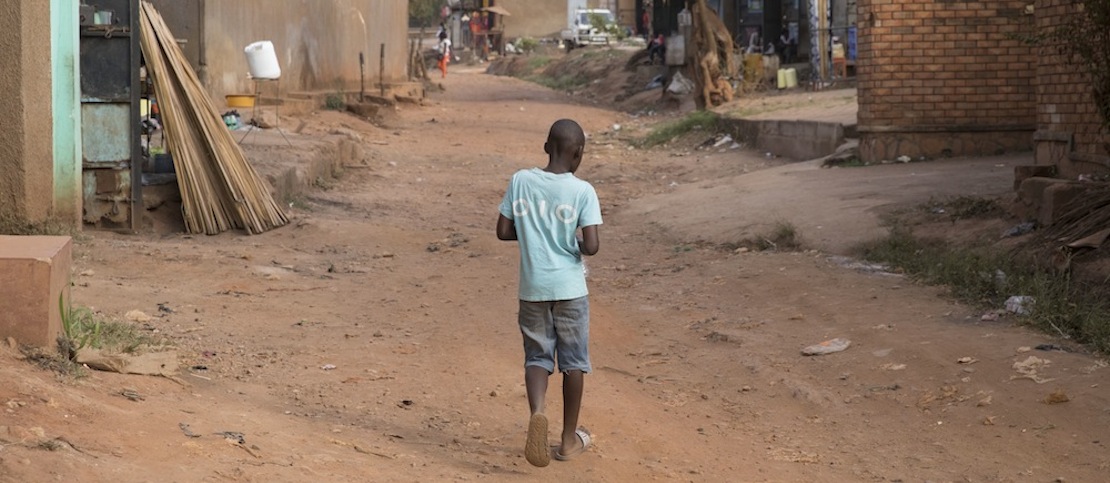By Oren Ziv
KAMPALA, Uganda — “Why should Uganda take in the people Israel doesn’t want?” asks Ssemujju Ibrahim Nganda, a Ugandan member of parliament who joined us in a cafe in central Kampala.
“If they’re being sent by the UN, they’ll be treated like all refugees, in a temporary manner because of the problems in their countries,” Nganda continues. He insisted on meeting us, after hearing that a small delegation of Knesset members was visiting his country from Israel. “Uganda will not become a dumping ground that whoever thinks they cannot host people — that you throw them in another country.”
We had just left Rwanda — with many questions. One thing, however, had become very clear: Rwanda is not a final destination for the refugees Israel is sending there. There is a well-oiled machine that pushes them out of the country as soon as possible. Of the several thousand asylum seekers that Israel has already deported to Rwanda, we are told that only eight remain there. The rest crossed the border into neighboring Uganda.
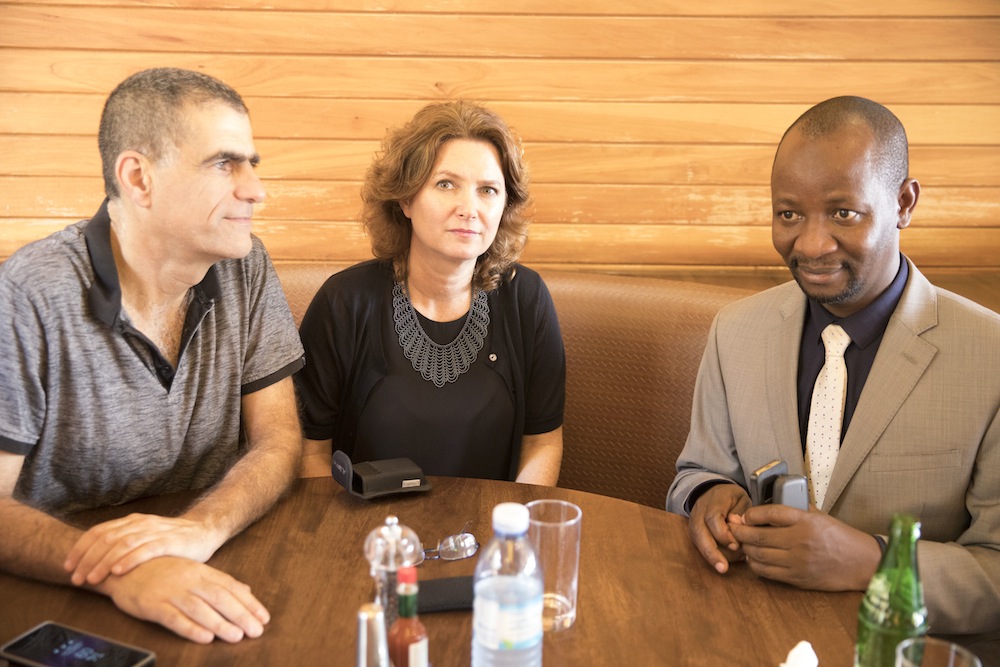
A sense of freedom
The short flight from Kigali, the Rwandan capital, drops us off in the dark, dilapidated airport at Entebbe, Uganda. From there, we take a van straight to Kampala, where we stay for the next few days. Our small delegation is made up of members of Knesset Mossi Raz and Michal Rozin of Meretz, two of their spokespeople, refugee rights attorney Asaf Weitzen, and myself.
Our plan is to trace the path of the asylum seekers whom Israel plans to deport — and those it has already pushed out — and try to learn any information we can about the secret agreements reportedly reached between Israel and both Rwanda and Uganda. The Rwandan and Ugandan governments deny that any such deals even exist.
In Uganda we do not sense the same fear that had seemed to grip Rwanda, where people were reluctant to speak to foreigners for fear of repercussions from the security forces. It had been impossible to take photos or video in cafes, where the number of security personnel and metal detectors would put even Israel to shame. In contrast, the chaos, colorful tumult, and congested roads in Kampala give off a sense of freedom.
Foreigners in a strange country
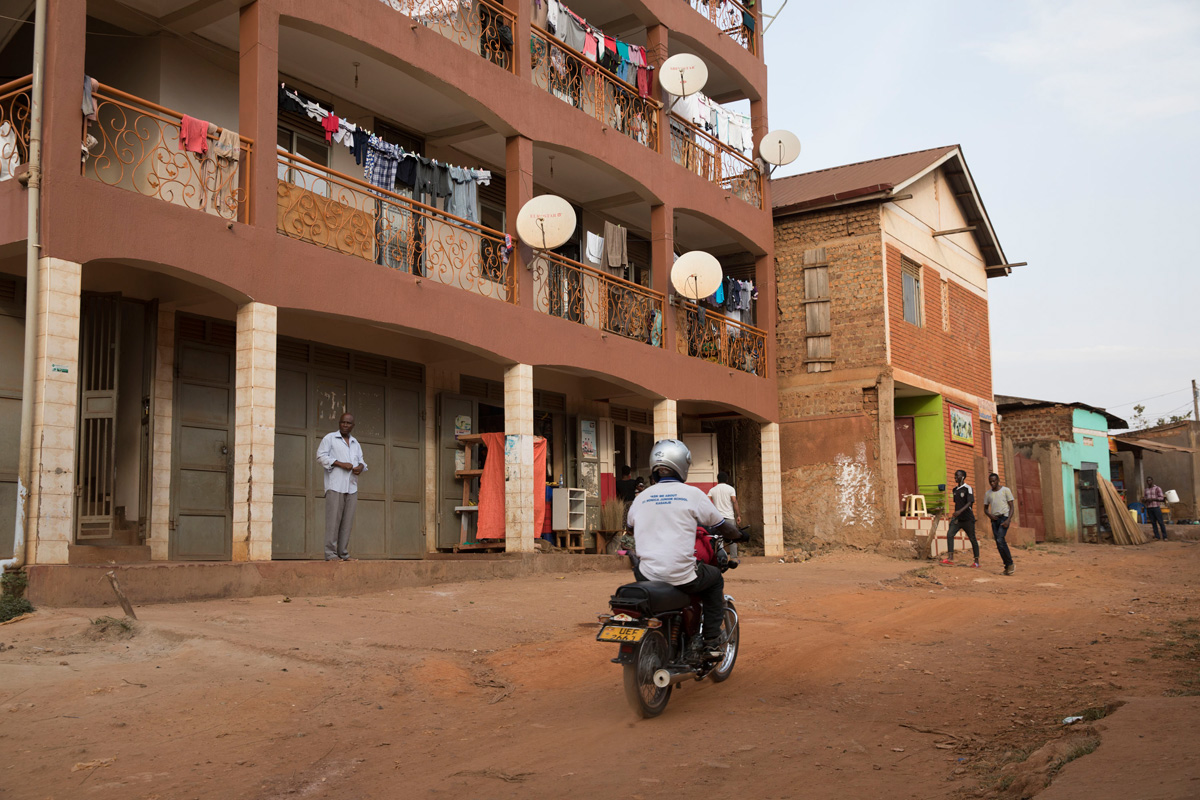
We arrive at Najana Kombi, a crowded refugee neighborhood without paved roads. Far from the city center, the buildings are made up of small, colorful housing projects. We find an Eritrean market where Raz and Rozin ask the man behind the counter if he knows anyone who has come from Israel. The shopkeeper pulls out his phone and within a few minutes two brothers, 24 and 26, appear from one of the nearby projects.
They tell us how they arrived in Uganda a year earlier after living in Israel for nearly five years. “We didn’t enter Uganda by way of [passport control]. Someone was waiting for us outside the plane and told us to follow him. He took the documents we received in Israel. Now we have no papers,” the older of the two brothers recalls. They say they decided to leave Israel after receiving instructions to report to Holot, Israel’s desert detention facility for asylum seekers.
“Life is not good here. We stay at home all day. There is no work, and you can’t go outside at night because people will rob you,” the younger brother explains. “I can’t leave the house with money because there’s a lot of crime, and I can’t go to the police if something happens to me.”
During our time in Kampala, I spoke with eight refugees who were forced out of Israel. Their stories are nearly identical: when they arrived at the airport in Uganda they were greeted by an unidentified official who confiscated the travel documents they received in Israel and then sent them to a hotel for two or three days. There, they were instructed to fill out asylum applications, but explicitly told not to write that they came from Israel. After several days, they were instructed to call someone to pick them up from the hotel, or to find another way out themselves. Without any documents, from then on, they were on their own — foreigners in a strange country, without any legal status or safety net.
Easy prey
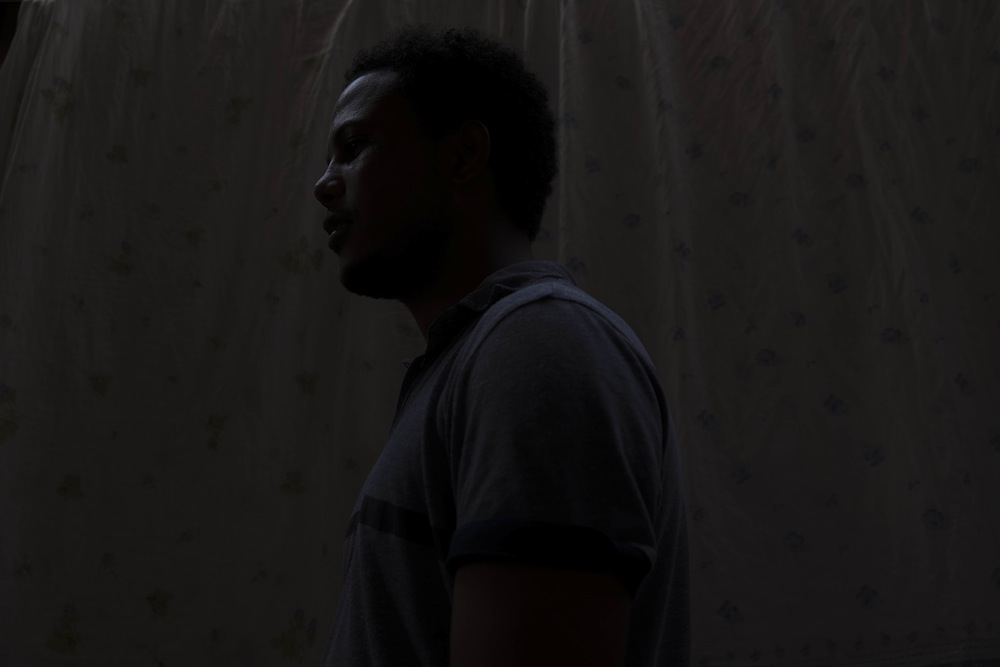
Tesfay (the names of all of the asylum seekers in this article have been changed for their protection) arrived in Kampala three years ago. He initially left Israel for Rwanda, but like many others, was sent across the border to Uganda after a few days.
“There were eight of us who arrived together on the same flight to Rwanda,” Tesfay tells me, as we sit on the patio of the hotel where the delegation was staying. “One wanted to stay in Rwanda, but they wouldn’t let him. When we got off the plane in Kigali, a man named John took us to a nearby hotel and forced us to pay $50 just for food and drink.”
“We had travel documents that Israel printed for us, which were valid for a week. We talked among ourselves about escaping and trying to travel to any country in Africa we wanted, but before we could prepare our escape they took our documents and told us to get on a minibus,” he recalls. “There, they took $100 from each of us and took us to the border with Uganda. We crossed on foot — not through an official border crossing.”
Tesfay says he left Eritrea at a young age to escape forced military service. Eritreans can be conscripted for decades at a time, which is often indistinguishable from slave labor. After five years in Israel, he was imprisoned in Holot for a year. That’s when he decided to leave. Since arriving in Uganda he has struggled to survive without any legal status or support. His savings, as well as the money he received as a departure grant from Israel, didn’t last him very long. Today he lives on the street. He says he has been robbed five times since he arrived. As a foreigner, he is easy prey.
“I sit in places where people are drinking and I say to them, ‘you are drinking and I have nothing to eat?’ Sometimes they give me water or cigarettes, and I borrow small sums to buy food,” Tesfay says.
Like many of the other asylum seekers we met in Uganda and Rwanda, Tesfay asks us to find a way to help him.
Uganda, a country of 40 million people, actually takes in a large number of refugees — around 1.4 million of them. The thousands of “Israeli” refugees, however, cannot go to refugee camps. They are undocumented, and their chances of finding even the most menial kind of work are almost nonexistent.
According to representatives of humanitarian organizations in Kampala with whom we met, more than 80 percent of the asylum seekers who arrived from Israel have left. The question, then, is why a country that takes in so many refugees treats asylum seekers from Israel differently.
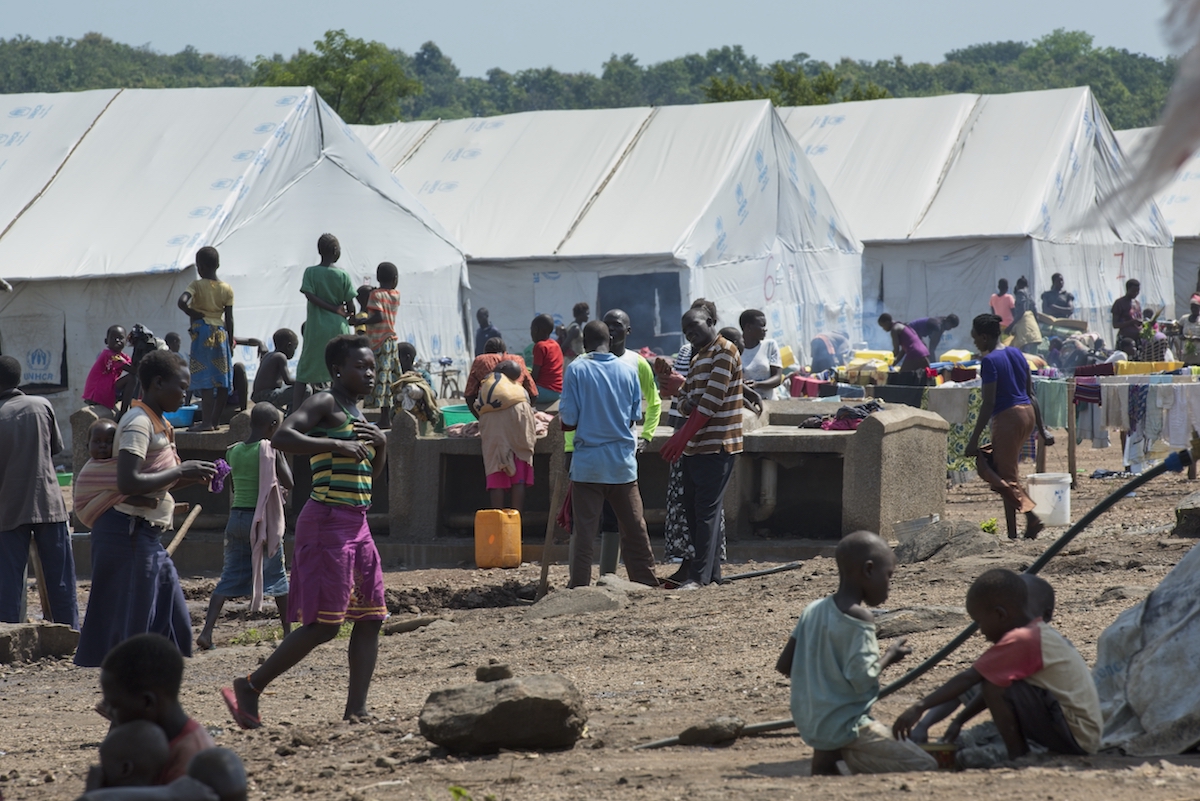
‘We are poor, but people here have open hearts’
Rawakapozi Ladislaos, a Ugandan lawyer who specializes in human rights law, says he heard about the secret agreement with Israel from the international media but has been unable to find any proof of its existence. The issue is simply not spoken about here. “Either the agreement involves transfer through the country, without the possibility of residency, or the government is so embarrassed by the existence of this agreement with Israel that it has not set up any system for absorbing the refugees and will not give them legal status.”
“Uganda is big enough to protect refugees,” he continues. “We are a poor country but people here have open hearts. At the very least we will meet our international obligations. Israel must meet its international obligations like every other country that deals with refugees and asylum seekers. It’s a rich country — there’s no reason why it should fail to take care of 40,000 people.”
Ladislaos accompanies us to some of our meetings with asylum seekers who have been deported from Israel. He listens to their stories and even tries to help some of them. Just before we return to Israel, he organizes a press conference for MKs Raz and Rozin. In what feels like a minute’s notice, some eight different local news crews arrive at our hotel. Speaking to the cameras, Raz and Rozin stress that the problem is not the deportations to Uganda themselves, but that refugees from Israel receive no official status.
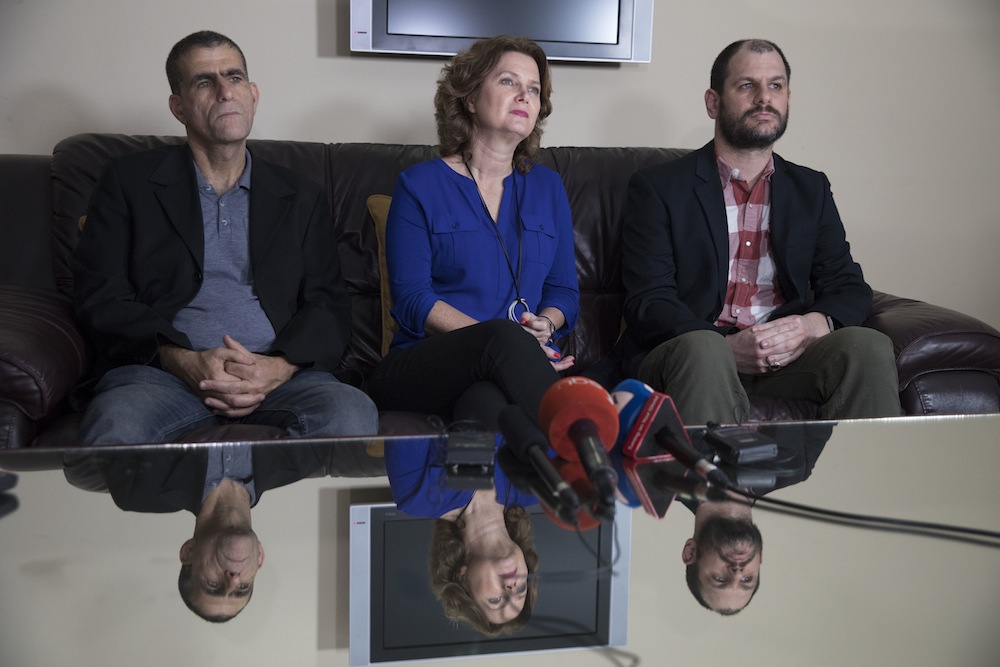
On the final day of our trip, Asaf Weitzen, the Israeli refugee attorney, shares some of his reflections on everything we had seen and heard so far and how it had changed his understanding of the situation: “We received testimonies from people deported to Rwanda and Uganda — that they didn’t receive legal status […] I thought that maybe [the refugees] received some kind of status but maybe it’s not completely formalized. I really didn’t know.”
After visiting Rwanda and Uganda, Weitzen continues, “I understood that Israel is simply committing crimes. According to all of the testimonies from people who were deported, as well as from international aid organizations and local groups, people arrive in Rwanda and are basically smuggled into the country from the airport. They don’t even pass border control in an orderly way. They have no means of appealing to a court. They cannot request status or anything like it. Then they are smuggled again. They are stuck in these two countries without any status.”
‘At least you have food in prison’
Throughout our trip, we are approached by asylum seekers who had been in Israel, and some of whom hoped our visit could bring them salvation. Others, who understood that there was no going back, simply wanted to relay a message to all those asylum seekers still in Israel. One of those who falls into the second category is Dawit, a 30 year old with excellent Hebrew and an unmistakable sadness in his eyes. He says he made a terrible mistake when two months ago he gave into the pressure put on him by the Israeli Interior Ministry and agreed to leave the country.
Dawit’s left Israel after the High Court ruled Israel could deport the asylum seekers to an undisclosed third country, in accordance with the secret agreements presented to the court. The government assured the court that it would guarantee that the deportees are taken in by those unnamed countries. Dawit, however, is without any legal status in Uganda.
Dawit speaks to +972 about his life in Uganda:
In November 2008, Dawit fled Eritrea to Sudan, and from there to Libya. He stayed in Libya for over year and was unsuccessful in his attempt at crossing the Mediterranean to Europe. He then changed direction and headed toward Israel via Egypt, where he arrived in May 2010.
“They told me ‘welcome,’ and gave me a month-long visa,” Dawit recalls. He says he moved to Petah Tikva and spent most of his time working for a local grocer. Dawit was on good terms with his boss and made friends with a number of Israelis, many of whom he still keeps in touch with by telephone, he says, smiling, but with a sense of loss. “I lived with Israelis and [Israel] is like my second country. They love me and I love them. I was successful at my job. I loved life.”
“After four-and-a-half years [in Israel],” Dawit continues, “I was told that I had to go to Holot or to a third country. I did an interview at Holot, but then decided not to go. I continued to work.” Dawit’s boss kept him on for three more years but the deportations, the new laws targeting asylum seekers, and pressure from the government all took their toll. A few months ago, Dawit’s boss told him he couldn’t work there anymore.
Dawit looked for a new job, but without any documents his only options were to leave for a third country or go to prison. He went to the Interior Ministry office in Bnei Brak and declared his intention to leave. Within a week he was on a plane to Uganda with $3,500 dollars in his pocket. He has been here ever since — without a visa or the ability to work.

Like many of the asylum seekers we have met, Dawit does not think of Uganda as his final destination. Just as he did in 2008, he says he is planning a second journey north — to Europe, where he believes he has a chance of being recognized as a refugee. “I want to try again. If I manage to escape ISIS and cross the sea — if I’m lucky, I’ll get to Europe. If not…” He falls silent for a few seconds. “That’s my plan. There’s no hope here.”
Asked what message he has for all those asylum seekers still in Israel, Dawit says: “If the choice is between leaving the country or staying in prison, I would tell them to stay in prison. If you’re in prison, at least you have food, health care — there’s someone who will take care of you. Here nobody knows you, and you don’t know what to do.”
Toward the end of our visit, I receive a phone call from Mebratu, an Eritrean asylum seeker who left Israel for Uganda in 2014. Mebratu survived torture camps in Sinai on his way to Israel. In Israel, he was imprisoned in Holot and participated in the Freedom March in 2014, when asylum seekers marched to the border with Egypt to protest the government’s refusal to process their asylum claims. The Israeli army and police violently dispersed the protest, and many of the asylum seekers who participated were subsequently imprisoned for three months. “In prison, the memories from Sinai came back to me,” Mebratu tells me, his voice cracking. “So I decided to leave instead of staying in prison, because of the protest.”
Since 2014, Mebratu has been in Uganda. He eventually managed to bring his wife and child from Eritrea. “In Eritrea it was hard for us. In Israel it was hard for us, and here it is hard, too,” Mebratu concludes. “From the day we arrived, we haven’t received a thing. I don’t work and I still don’t have legal status. I’d be better off if I had stayed in Israel.”
Staying, for now
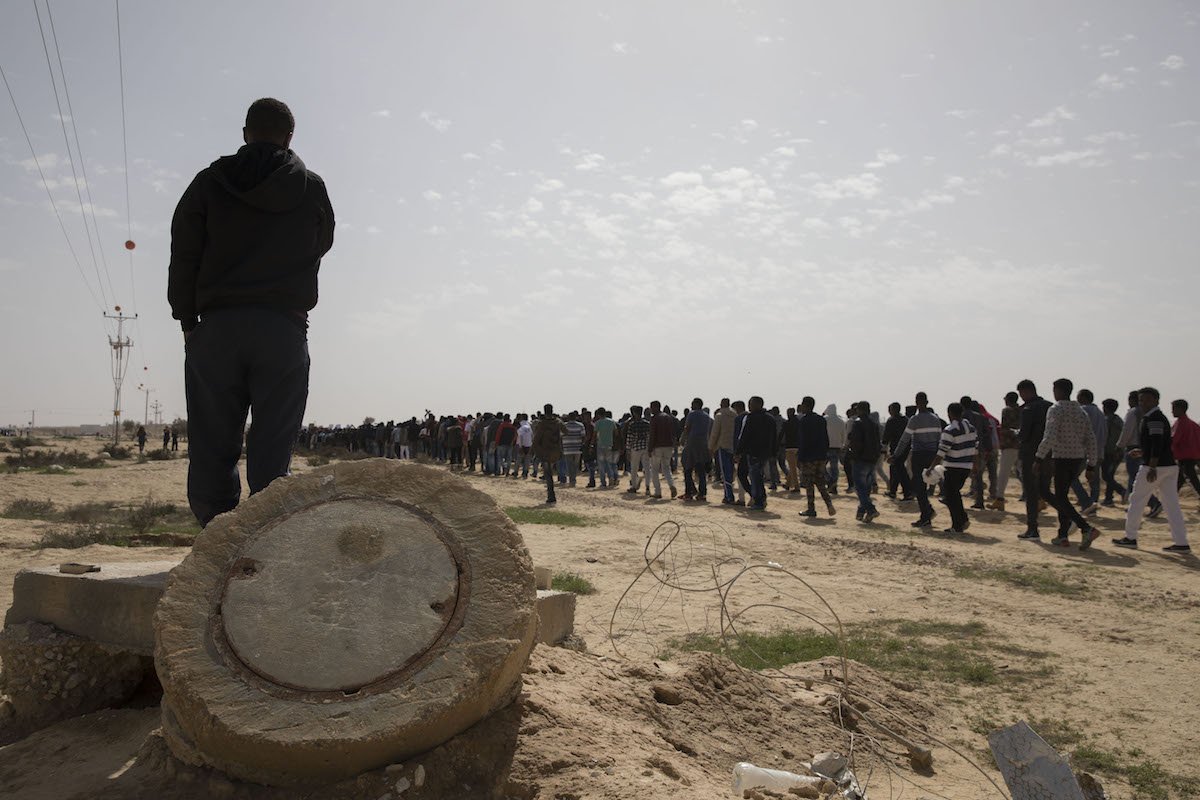
Three days after returning to Israel, I go to Holot as part of a project to document asylum seekers in Israel before they are deported. Between interviews and photo shoots, I speak with a few refugees I know who have already received deportation notices. Habtom, a refugee whom I’ve known for some time now expects to be sent to prison in a few days — his only alternative to deportation. He knows that after some time in prison he will be tempted to accept the deportation offer.
Many of the detainees in Holot have been following the reports from our trip to Rwanda and Uganda. “We saw Michal Rozin there,” they tell me. Habtom shows me a Facebook post, translated into to Tigrinya, that discussed our visit. The detained refugees seem moved by the fact that two Israeli parliamentarians traveled to see with their own eyes what awaits them there.
I show Habtom and a few people who had gathered around us the recording of Mebratu from a few days earlier in Uganda. His face is blurred but everyone strains to remember if they knew him or not. It was hard for them to listen to the young man who just left Israel in such distress.
As the sun set, I again meet up with Habtom, who seems to be reaching a decision. He is almost certain that he will not leave for a third country, he says. Or at least not yet.
A version of this article also appears in Hebrew on Local Call. Read it here.

